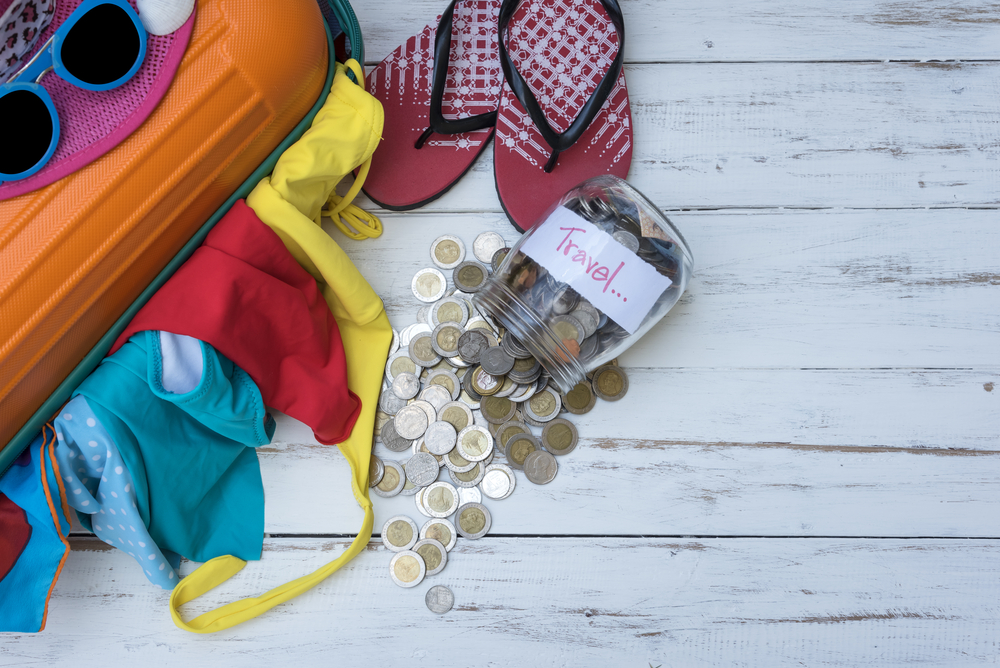Household Bills
Five ways to get the most out of your holiday money

Are you planning to go on holiday soon? Here are Caxton’s top tips to help you to get the best possible rate for your holiday money.
Working out the best time to exchange travel money is never an easy decision. If you throw in the extra volatility that sterling has experienced as a result of Brexit uncertainty, it’s easy to understand why many people leave it to the last minute to get their holiday money.
In light of this, foreign exchange company Caxton has sought to lend a helping hand by looking through historical data to find out which times of the year sterling has typically performed well against other major currencies.
Data that goes back to 1999 shows that sterling typically gained the most ground against the euro during the month of September, and advanced the most against the US dollar in April.
Conversely, sterling tends to decline against the euro in both January and May, and generally struggles in the month of August against the dollar.
Nevertheless, Caxton points out that past data is by no means an indicator of future performance. So far this year, sterling’s strongest gain has been in January against both the euro and the dollar, where it was trading at a high of around €1.16 and $1.32 respectively.
As Brexit negotiations rumble on, sterling has been hit – falling to a low of $1.28 on Thursday, as investors grew concerned that the UK is on course to leave the European Union without a deal.
Alana Parsons from international payments and foreign exchange firm Caxton commented: “There’s a lot of uncertainty right now because of Brexit and global events impacting the forex market. However, there are a number of ways travellers can protect themselves to get more foreign exchange for their pounds.
“Build up a travel money fund and lock in an exchange rate for your next trip on a currency card, keep a watchful eye on the rates so you can take advantage of any gains, and most importantly don’t leave it all to the last minute and avoid airport kiosks!”
Top tips
If you are preparing to go on holiday, here are Caxton’s five top tips to get the most out of your holiday money.
1) Use a currency card
Currency travel cards are a great way to get the most out of your holiday money. Not only do they tend to offer great exchange rates, and few, if any charges when spending abroad, they also allow holiday makers to pre-load exactly how much they want to spend, meaning you are less likely to blow your budget.
2) Avoid airport bureaus at all costs
Always avoid airport bureaus for exchanging money, as they generally provide poor value. The bureaus have captive markets in the airport, leaving them free to offer travellers terrible rates and commission. Make sure you plan ahead to avoid this. Even if the rate is just 2% higher, this could be as much as £40 on the average family’s holiday spending money.
3) Watch the rates to take advantage of gains
Brushing up on how the markets work and understanding what a good exchange rate is for your holiday currency always helps to make more informed decisions.
Also take note of big economic events since they can significantly influence the strength of a currency, so keep up to date with current affairs, and check the news headlines. It’s worth taking advantage of gains in your favour. If you see news that the pound is strengthening, it’s worth booking some of your holiday money that day!
4) Hedge your bets
Consider playing it safe: you can hedge your bets by exchanging half your currency now, half later. This can be done easily by locking in a rate in advance. That way, whether the rate goes in your favour or against you, you’ll benefit from the higher exchange rate on at least half of the amount.
5) Insist on paying in the local currency
If you are using a debit, credit or pre-paid card when travelling abroad, always be sure to pay in the local currency of the destination you’re in. Many people pay in pounds out of convenience and are not aware that by paying in sterling, the money gets converted twice – known as dynamic currency conversion – resulting in unnecessary charges.
In some cases, this could be as much as £6 per transaction, which quickly adds up over the course of a holiday. However, a new Mastercard rule that prohibits dynamic currency conversion on pre-paid currency cards came into effect on the 12 April, so restaurants, cafes, hotels, and all other shops should not be offering the option to pay in pounds in the first place.